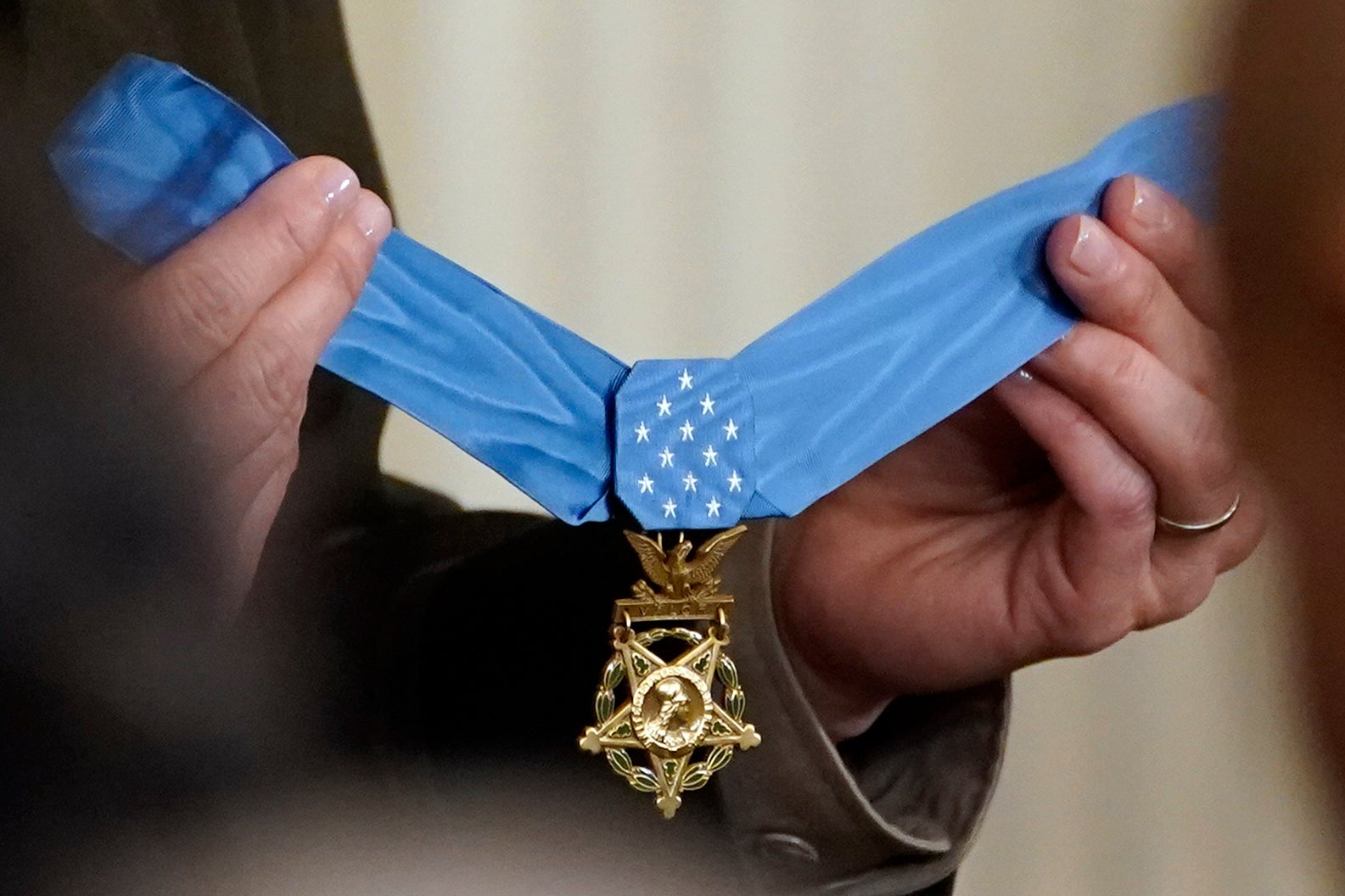Biden to award Medal of Honor to Army helicopter pilot who rescued soldiers in a Vietnam firefight
President Joe Biden is awarding the Medal of Honor to an Army pilot from the Vietnam War who risked his life to rescue a reconnaissance team that was about to be overrun by the enemy, facing almost certain death

President Joe Biden will award the Medal of Honor on Tuesday to a Vietnam War Army helicopter pilot who risked his life by flying into heavy enemy fire to save four members of a reconnaissance team from almost certain death as they were about to be overrun.
Biden is recognizing retired Capt. Larry Taylor of Tennessee at the White House.
On the night of June 18, 1968, then-1st Lt. Taylor flew his Cobra attack helicopter to rescue the men after they had become surrounded by the enemy.
Taylor, now 81, recalled in an interview last week that he had to figure out how to get them out, otherwise “they wouldn't make it.”
David Hill, one of the four Taylor saved that night, said his actions were what “we now call thinking outside the box.”
Hill and the others were on a night mission to track the movement of enemy troops in a village near the Saigon River when they were discovered by North Vietnamese and Viet Cong troops. An intense firefight ensued and soon they were running out of ammunition. They radioed for help.
Taylor arrived in minutes at the site northeast of what is now Ho Chi Minh City. He asked the team to send up flares to mark their location in the dark. Taylor and a pilot in an accompanying helicopter started firing their ships' Miniguns and rockets at the enemy, making low-level attack runs and braving intense ground fire for about a half-hour.
But with both helicopters nearly out of ammunition and the enemy continuing to advance, Taylor surveyed the team's intended escape route to a point near the river and concluded that the men would never make it.
He had to think of something else.
Now running low on fuel and almost out of ammunition himself, Taylor directed his wingman to fire the rounds left in his Minigun along the team's eastern flank and return to base camp, while Taylor fired his remaining rounds on the western flank. He used the landing lights to distract the enemy, buying time for the patrol team to head south and east toward a new extraction point he had identified.
After they arrived, Taylor landed under heavy enemy fire and at great personal risk. The four team members rushed toward the helicopter and clung to the exterior — it only had two seats — and Taylor whisked them away to safety. He was on the ground for about 10 seconds.
“I finally just flew up behind them and sat down on the ground,” Taylor said by telephone. “They turned around and jumped on the aircraft. A couple were sitting on the skids. One was sitting on the rocket pods, and I don't know where the other one was, but they beat on the side of the ship twice, which meant haul a--. And we did!"
What Taylor did that night had never before been attempted, the Army said.
Taylor said he flew hundreds of combat missions in UH-1 and Cobra helicopters during a year's deployment in Vietnam. “We never lost a man,” he said.
“You just do whatever is expedient and do whatever to save the lives of the people you're trying to rescue,” he said.
Taylor left Vietnam in August 1968. He was released from Army active duty in August 1970, having attained the rank of captain, and was discharged from the Army Reserve in October 1973. He later ran a roofing and sheet metal company in Chattanooga, Tennessee. He and his wife, Toni, live in Signal Mountain, Tennessee.
He received scores of combat decorations, including the Silver Star, a Bronze Star and two Distinguished Flying Crosses. But Hill said in an interview that he and Taylor's other supporters were shocked to learn long after that harrowing night that Taylor had not been awarded a Medal of Honor.
Hill said they believed Taylor deserved the medal, the military's highest decoration for service members who go above and beyond the call of duty, often risking their lives through selfless acts of valor.
Their campaign lasted more than six years. Biden called Taylor in July with the news.
Bookmark popover
Removed from bookmarks